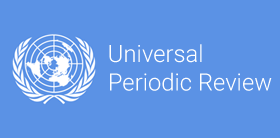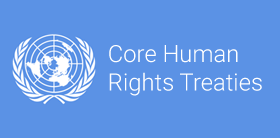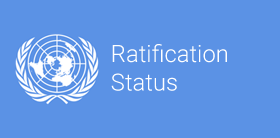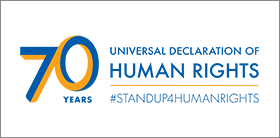Pillay on International Day for the Elimination of Racial Discrimination
March 20, 2009
20 March 2009- The UN High Commissioner for Human Right Navi Pillay has issued the following statement to mark the International Day for the Elimination of Racial Discrimination, which takes place on Saturday 21 March 2009.
On this day each year, we mark a single tragedy that focused international attention on the struggle against one of the most discriminatory political systems in modern history. Forty nine years ago today, dozens of peaceful demonstrators were massacred in Sharpeville, South Africa, by the brutal forces of a blatantly racist regime.
But the massacre in Sharpeville represents a much wider tragedy: we mark its anniversary to remember also the millions of people around the world who are still, today, victims of racism and racial discrimination.
Racial discrimination denies its victims the most fundamental of all human rights – the right to equality.
Racism, racial discrimination, xenophobia and related intolerance are insidious, corrosive and sometimes explosive forces that devastate the lives of many individuals and, if left to fester, can undermine societies as a whole. They present a threat to security and often feature among the root causes of violent conflict.
Taken to an extreme, unchecked – or deliberately fuelled – racial discrimination and intolerance can lead to ethnic cleansing and genocide.
So we mark this day to remind people around the world of the need to fight against racism and intolerance in their own communities; to support organizations that work at local, national, regional and international levels to promote the principles of equality and non-discrimination; and to reinvigorate the efforts of governments to combat racism.
We have promised to take concrete steps to improve the lives of victims of racism: eight years ago, governments from around the world gathered in Durban, South Africa, for the 2001 World Conference against Racism. They recognized that no country was free of racism and they pledged to make unprecedented efforts to eradicate it.
Just one month from now, governments and organizations will gather again, this time in Geneva, to review the progress that has been made in implementing those pledges.
There has indeed been progress in the intervening years in many areas, but that progress has been partial, and there have been serious setbacks too. The challenge we face is to translate those 2001 promises into action. The Durban Review Conference is a forum for governments to come together and reinvigorate their efforts to combat racism, to share the practices that have been successful and to highlight the areas that still need most work.
I welcome the recent progress in preparing the groundwork for this conference; it is important that our efforts are collaborative and that we produce concrete steps that can be implemented at all levels.
The Durban Review Conference will be convened under the banner ‘United against Racism: Dignity and Justice for All.’ Let us work together to ensure that we are, indeed, united in our efforts and that we can truly make progress in creating a world where the promise of ‘dignity and justice for all’ is not an empty slogan.




